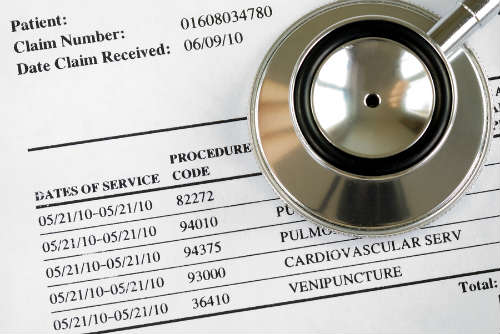It will take multiple steps to help you eliminate your medical debt. Here are six strategies you can use to knock down those hospital bills and improve your credit rating.
Examine Everything
Start by going over all your medical bills with a fine-tooth comb. Question charges that seem inflated (like that $20 bottle of aspirin). Also, ask for explanations from your healthcare providers regarding invoices for services you don’t recognize or understand. Simply forcing them to account for everything may result is certain charges being waived or reduced.
Find Out About State Freebies
Lots of states offer their residents free mandatory coverage or health insurance with small co-pays and low deductibles. If any of your treatment should have been covered by a state program, see if state resources can fill the gap and pay what you’ve been charged.
Ask Directly for Discounts
Ask the hospitals, clinics and healthcare professionals that serviced you whether or not you qualify for any discounts, charity, or write-downs of your total bill outstanding. Don’t be ashamed to let the hospital(s) know about your entire financial predicament. They may be more lenient if they know that you’re not working, are not insured, have lots of other debts, are a single mom, etc.
Request a Payment Plan
If you can talk to a kindly, flexible billing representative/hospital administrator, or even better, the doctor(s) who treated you, ask if you can get on a payment plan. Try to stretch out the plan for as long as reasonable in order to give yourself time to pay off all that you owe. If they agree to discount $2,000 of your original $5,000 in bills, then you’ll have $3,000 remaining to pay off over time. If you can commit to pay that off in two years, that means you’ll have to pay $125 a month ($3,000 divided by 24 months).
Negotiate to Improve Your Credit Rating
Also, while you are negotiating, request upfront that the hospital agree to delete all negative references to your credit files. They may only do it once you’ve completed your repayment plan. But that’s better than letting the late payment or collection information sit on your credit reports for seven years. Get any agreements in writing.
Get a Medical Advocate
Don’t give up on negotiating down that medical debt, or to improve your credit standing. Sometimes you have to go to multiple people or write numerous letters. But it will be worth it in the end if you can rid yourself of thousands of dollars of medical bills. If your own efforts don’t get you anywhere, get help from a third party, such as Access Project (http://www.accessproject.org) or Medical Bill Advocates (http://www.billadvocates.com). For those with hefty hospital bills, The Access Project’s Medical Debt Resolution Program can guide you through the maze of negotiating with insurance companies, medical providers and public programs to resolve your medical debt.










